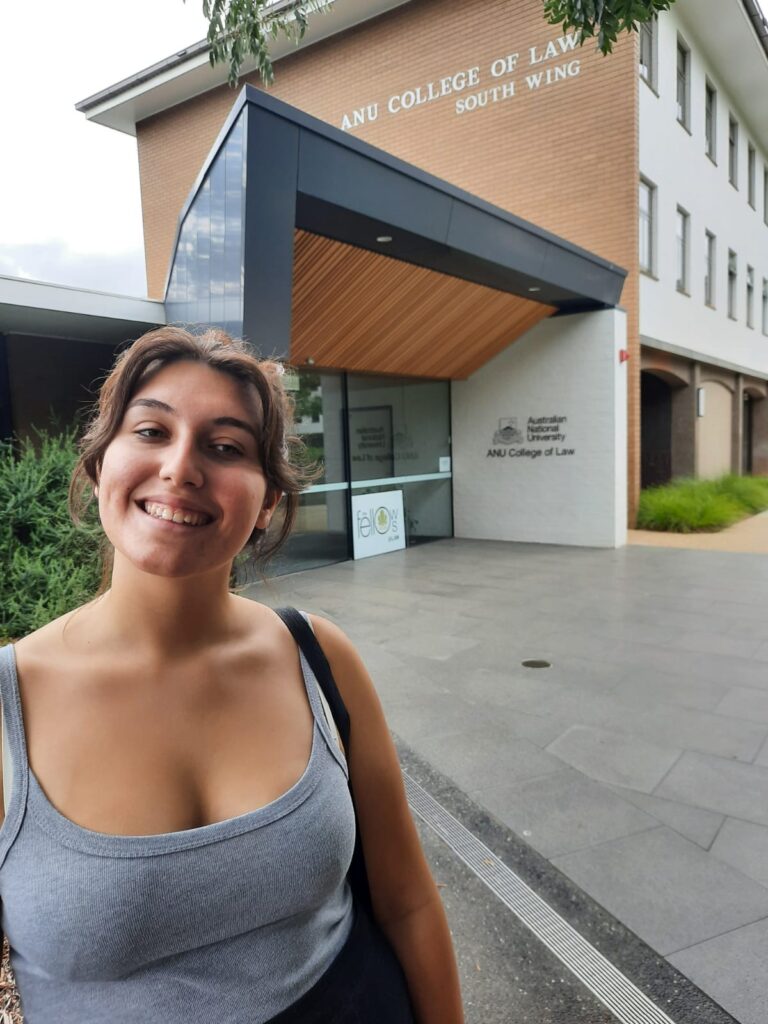By Margherita Dall’Occo-Vaccaro
When I first became an active member within the disabled community, I was surrounded by the successes of women with disabilities. To tell you the truth, it was incredibly emotional – seeing women like me be successful. Be leaders. Be powerful and proud and unapologetic about who they were. I saw women celebrating each other, supporting each other and most of all, being silly and fun together.
This community of women inspired me to have my voice heard in an area I was most interested in – politics and the law. As soon as I started studying law, I realised the journey would be more challenging than I had predicted. Representation of young disabled women as leaders in this sector was, and still is, incredibly limited. I rarely saw female lawyers speaking about being disabled in the workplace, female judges or politicians open about how difficult it was navigating these spaces both as a woman and as a person with a disability.
Women in law have been historically underrepresented. Although the statistics seem better now, it doesn’t mean women are leading in law. The majority of partners at firms, of judges and of team leaders are still men. The gender equality movement has long fought for women to be represented in these high rises and in the courtroom. In hearing stories about how only 20, 30 years ago women weren’t allowed to wear pants in the office, it’s obvious that there is still a long way to go.
Considering the situation for women, imagine the situation for women with disabilities! As a young law student at the ANU, I looked towards female professors, lawyers, and successful women in the field. I quickly realised that most of these people were white, from a privileged background and socioeconomic class, and if disabled, not open about it within the workplace. I can’t blame them for not wanting to disclose, because with the legal sector and broader community’s existing attitudes, who knows how they would be treated? Who knows how their colleagues would treat them? Why be proud and honest about your disability if the attitudes are still strongly ableist or indifferent?
My answer to that question would be for young women like me. For young women to see that there’s nothing to be ashamed of, and that they support the fight we’re trying to put forward.
Even within feminist movements, conversations about intersectionality have just begun. I rarely hear feminist advocates talking about how one person may be affected on multiple levels due to the multiple layers of their identity. It seems that nobody is talking about how women in law are less supported if they are women of colour, disabled, migrants, or belong to any other marginalised community that shapes their identity. In reality, the fight for gender equality has excluded these groups of women, and now we seem to be tasked with a whole different fight for women in these communities.
Culturally, my family struggled to accept my identity as a person with a disability, with the attitude that it would be harder for me to find work if I ticked the ‘disabled’ box on job applications. When starting my studies, I was unsure how I would navigate my future workplace, let alone my current studies. Although I was supported, I’ve never had the conversation of disability in the workplace through my university. I’ve never been supported to disclose my disability. This has been made even more difficult when basic accessibility requirements haven’t been put in place – with disability still considered a ‘secret’ topic in many ways. I understand how difficult it can be as a woman in law, already having to justify your space and often your decisions, while also wanting to further your own career and not be a whistleblower. Understandably, having to further bring up issues that affect you on top of gender inequality can be the most immense challenge.
This is why it shouldn’t be the responsibility of women with disabilities to always put themselves in vulnerable positions. To always be the only ones in the room piping up, or to make themselves the face of disability inclusion. As a person with a disability, underrepresentation, ableism and ignorance around disabled issues and accessibility needs impact my life every day. I never have a day ‘off’ from advocating for myself and my needs. To have to go into a workplace and do this all over again is exhausting.
In saying this, I am proud of my disabled community in law. I am proud of all the women in law who have fought for their rightful place. I am proud of all the young disabled law students navigating the start of their journey within the law.
All I can hope for now is that the disabled community of women in law grows, and that the law profession starts prioritising changing the ableist attitudes existent today.
Margherita is a law student at the Australian National University and advocates for inclusion of students with disabilities within the law, wider projects and universities around Australia. She uses her experience to support and encourage others to speak out about disability inclusion. Margherita is also WWDA’s Youth Development Officer.

